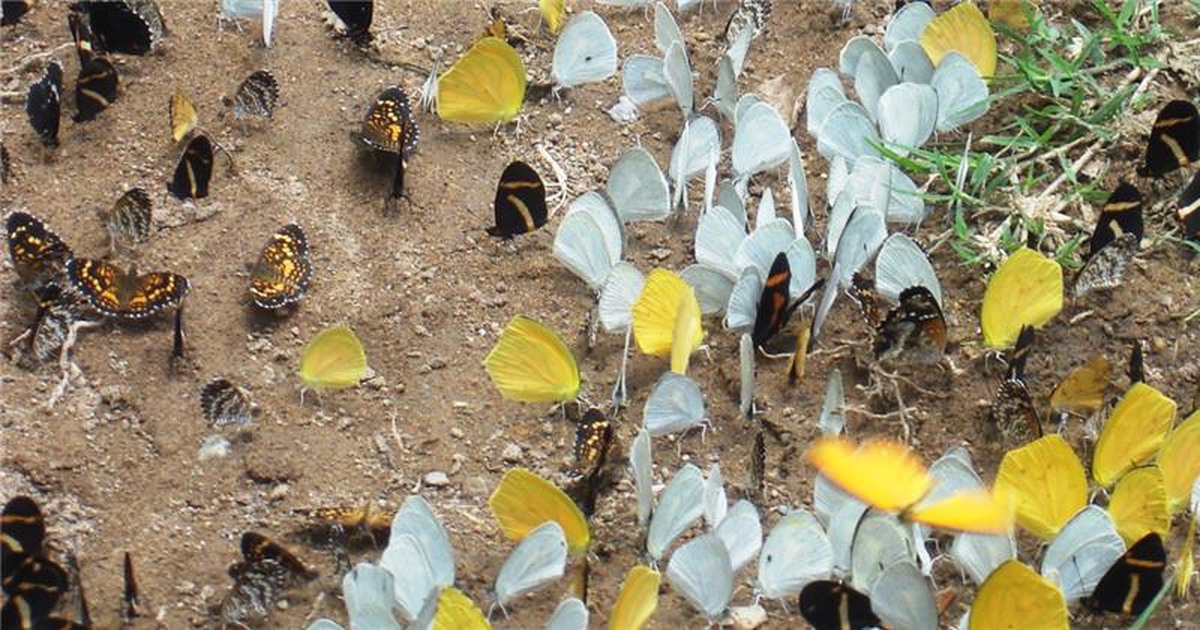- 2.1Impact Factor
- 4.0CiteScore
- 18 daysTime to First Decision
Biogeography and Diversity of Butterflies and Moths—2nd Edition
Special Issue Information
Dear Colleagues,
Lepidopterous insects, commonly known as butterflies and moths, are of great ecological importance and conservation value. The pollination service they offer is second only to Hymenoptera insects such as bees and wasps, which provide us with a fruitful and colourful world. However, the conservation status of butterflies and moths remains far from satisfactory. Despite the development of national legislation, the establishment of protected areas, CITES regulation, and the performance of IUCN assessments, only a very limited number of butterflies and moths are currently protected. Many other taxa, especially those with a narrow range of distribution, remain on the brink of extirpation or extinction.
Despite being the subject of taxonomical and regional species surveys, our knowledge of the biogeography and spatial pattern of diversity of these insects, especially those studied in large-scale research, remains very limited. The spatial distribution of their diversity and biogeography, on both the species and genetic level, are crucial in understanding species’ historical and present status. This would allow us to enhance the effectiveness of future conservation planning and strategies. Moreover, quantitative research on their ecological functions, such as their pollinating networks, is underdeveloped. Additional research on these insects is needed; this would include their regional species assemblage, spatial diversity distribution pattern, biogeography and phylogeography, population dynamics, and pollinating networks under anthropogenic disturbances and climate change.
This Special Issue is an excellent opportunity to combine and synthesise recent research on the diversity and biogeography of butterflies and moths. The team at Diversity kindly invites you to submit a manuscript focused on any of the above topics, except for research on Lepidoptera insects that are harmful to agriculture. Although small-scale case studies (including species inventory) with broad implications are welcome, we are happy to receive both small- and large-scale case studies, multi-species studies, synthesis works, and reviews that enhance our knowledge of the diversity, biogeography, pollination, and conservation of butterflies and moths globally. If you are interested in this opportunity or have any questions, please do not hesitate to contact us.
Dr. Shao-Ji Hu
Dr. Luc Legal
Guest Editors
Manuscript Submission Information
Manuscripts should be submitted online at www.mdpi.com by registering and logging in to this website. Once you are registered, click here to go to the submission form. Manuscripts can be submitted until the deadline. All submissions that pass pre-check are peer-reviewed. Accepted papers will be published continuously in the journal (as soon as accepted) and will be listed together on the special issue website. Research articles, review articles as well as short communications are invited. For planned papers, a title and short abstract (about 250 words) can be sent to the Editorial Office for assessment.
Submitted manuscripts should not have been published previously, nor be under consideration for publication elsewhere (except conference proceedings papers). All manuscripts are thoroughly refereed through a single-blind peer-review process. A guide for authors and other relevant information for submission of manuscripts is available on the Instructions for Authors page. Diversity is an international peer-reviewed open access monthly journal published by MDPI.
Please visit the Instructions for Authors page before submitting a manuscript. The Article Processing Charge (APC) for publication in this open access journal is 2100 CHF (Swiss Francs). Submitted papers should be well formatted and use good English. Authors may use MDPI's English editing service prior to publication or during author revisions.
Keywords
- Lepidoptera
- species richness
- phylogeography
- diversity conservation
- spatial distribution
- pollinating networks

Benefits of Publishing in a Special Issue
- Ease of navigation: Grouping papers by topic helps scholars navigate broad scope journals more efficiently.
- Greater discoverability: Special Issues support the reach and impact of scientific research. Articles in Special Issues are more discoverable and cited more frequently.
- Expansion of research network: Special Issues facilitate connections among authors, fostering scientific collaborations.
- External promotion: Articles in Special Issues are often promoted through the journal's social media, increasing their visibility.
- e-Book format: Special Issues with more than 10 articles can be published as dedicated e-books, ensuring wide and rapid dissemination.

